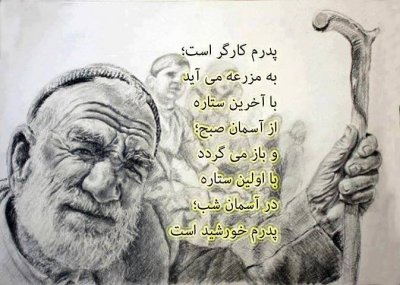Brazil: Statement of the Solidarity Committee with the People of Afghanistan
31st July 2013
Massive Protest and Upheaval in Brazil: People want Change
On 19 June this year, Brazil woke up not the delightful rhythmic beat of the samba in the streets but in anger and protest. This is extraordinary in a country famous for its annual carnivals and football success.
Across the country, from bustling Sao Paulo and Brazilia to Belo Horizonte and Rio de Janeiro, people from different walks of life, especially the urban poor, spilled out of their homes in huge demonstrations against what began as protest against bus-fare hikes. The thousands soon swelled to tens of thousands and indeed to hundreds of thousands, engulfing different strata and classes in Brazilian society, challenging the great and ever widening inequality between the rich and the poor in the Brazilian society. The demonstrations, as expected, were met by vicious police baton charges, tear gas and water cannons causing grievous injury to the people in the streets.
Bread and Games Fail to Stifle Protest
The open questioning and condemning of the neglect and deterioration of the most basic of public services, such as health care, education, housing and public transport in contrast to lavish government spending on prestige projects and events like carnivals and games in recent times is unprecedented.
The prestigious Confederation Cup football tournament was then fully underway. On 19th June, more than 15,000 people marched to the soccer stadium in Fortaleza denouncing the games in no uncertain terms.
The protestors in rising numbers also decry both the coming World Cup (2014) soccer tournament which will be played in Brazil and the 2016 summer Olympics Games also to be the held in the country. The call, “fuck the World Cup!” might have sounded very much sacrilegious not long ago in the land where soccer is almost the national religion. But today, this defiant cry is heard over and over again.
The Gulf between the Rich and Poor
The reason is not hard to fathom. While Brazil is one of the fastest growing economies in the world today, having overtaken Britain as the planet’s fourth largest economy, health care for the common folk has been deteriorating or virtually non-existent causing great grief, suffering and hardship.
So has education for the poor classes and strata in society. The government has not been able to solve the problem of widespread illiteracy in the 21stcentury.
Public transport has been worsening in service, but a handful of companies which own all buses, with close ties to the state and powerful politicians, have been profiteering greedily - increasing the bus-fares thereby making travel very expensive for the already impoverished. Three companies in Sao Paulo own the largest number of buses in the world.
The last mayor of Sao Paulo to demand disclosure of the accounts books of these companies had to end up wearing bullet-proof vests in public. Such is the measure of power-play, corruption, arrogance and the reign through death-squads, if not the police, by the elite which runs public transport. Indeed, the immediate cause which galvanized people into the streets of Brazil today is the rising cost of transport and the mind-boggling corruption around ownership and control of it.
Brazilian society is one of the most unequal societies on earth today. This is so despite the so-called welfare measures for the needy and poor supposedly undertaken by social democratic Workers’ Party’s administration for over two decades.
This government first led by Silvio Lula, and now by Dilma Rousseff has been tagged “leftist,” but having to steer the country through a capitalist system, overseen by the US neo-liberal economics, it has not been closing the chasm between the rich and the poor.
Neither has Brazil broken free from the grip of the imperialist system led by the US.
In the vast territories of the countryside, in the face of wealthy ranchers’ armed hirelings and the police force, the movement of the landless peasant-farmers continue to struggle to eke out a living.
On the other hand, the more right-wing political parties and the wealthy class forces constantly point to, and harp on the continuing rampant corruption in the state apparatus. Around the issue of corruption, there are indeed efforts by these forces to take over the direction of the dissent from the streets and place themselves at the head of the movement so as to once again entrench the status quo.
More Theatrics: the Pope’s Visit
The visit of Pope to this predominantly Catholic country was thought to have diversionary, but calming effect on the disgruntled people by certain quarters in power and influence. But the massive demonstrations against the Pope and the Vatican seem to prove otherwise. The visit and His Holiness’s preaching and homilies only served to add new fuel for fresh protests and rebellion.
Brazil, together with Russia, India, China and South Africa, BRICS, are called the new emerging economic power-houses of the world capitalist system. Such characterization flatters the ruling classes and their hangers-on in these lands but there is growing anger, frustration and revolt in all these countries and the lower strata of society and the rising vigilance and boldness of the youth.
There is still great disorder under heaven and it is right to rebel!
Solidarity Committee with the People of Afghanistan
Other posts
- Bangladesh Maoist Armed Struggle
- From the coming issue of Red Sun Magazine #39 UNMASK THE “NEW SYNTHESIS” AND ALL OF NEW REVISIONISM! LONG LIVE MARXISM-LENINISM-MAOISM, PRINCIPALLY MAOISM!
- رفیق بصیر اخگر شاهین ستیغ های سرخ
- "زنان شصت درصد فعالین مائوئیست هند را تشکیل میدهند"[i]
- The Indian State Must be Held Responsible for the Cold-blooded Murder of Ganti Prasadam!
- مبارزه علیه اپورتونیزم ورویزیونیزم را گسترش وغنای بیشتربخشیده وازرفقای ما به دفاع برخیزیم
- CPMLM-BD: AN OPEN LETTER TO THE SINCERE COMRADES OF NEPAL
- Our values
- With light and happiness


